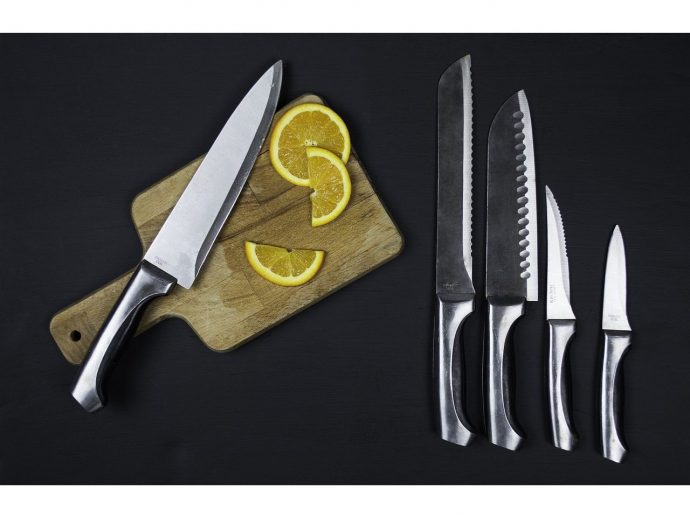Categories more
- Adventures (17)
- Arts / Collectables (15)
- Automotive (37)
- Aviation (11)
- Bath, Body, & Health (77)
- Children (6)
- Cigars / Spirits (32)
- Cuisine (16)
- Design/Architecture (22)
- Electronics (13)
- Entertainment (4)
- Event Planning (5)
- Fashion (46)
- Finance (9)
- Gifts / Misc (6)
- Home Decor (45)
- Jewelry (41)
- Pets (3)
- Philanthropy (1)
- Real Estate (16)
- Services (23)
- Sports / Golf (14)
- Vacation / Travel (60)
- Watches / Pens (15)
- Wines / Vines (24)
- Yachting / Boating (17)
5 Expert Tips for Choosing the Right Knives for Your Luxury Kitchen
Published
09/15/2024Designing a luxury kitchen can be a challenge.
A luxury kitchen must be functional and aesthetically designed. How you fill-up the space will determine the result. Choose high-end appliances, premium finishes, and world-class fixtures to give your kitchen the luxury dream makeover it deserves.
When equipping luxury kitchens, many people forget the importance of choosing the perfect knives. There are several factors to consider when buying a quality set of knives.
Below are five expert tips to help you choose the best knives for your luxury kitchen:
1. Weight
The weight of a knife is a subjective subject for chefs worldwide.
What is satisfying for one chef might be cumbersome for another. Heavy knives are ideal for preparing hard vegetables or poultry bones, while light ones are best suited for speed-slicing your way through delicate ingredients.
The weight of the knife you choose will impact its balance.
2. Purpose
Knives get crafted for a specific purpose, but kitchen knives can be multipurpose - to an extent.
The best advice for buying the perfect knife for your dream kitchen is to know what its purpose will be. Narrow-bladed knives are better suited to slicing, and knives with broader blades are excellent for chopping.
When buying a set of knives, understand that professional knives are more of an investment than conventional knives. They are worth spending extra on because they are streaks ahead of their average counterparts with sharpness, ease of use, and quality.
3. Comfort
Regardless of whether you or your chef will be preparing your meals, comfort is always a key consideration when buying kitchen knives.
A good knife will feel comfortable and natural in your hand. If you want to buy your set of knives online, chat with a knife expert for valuable insight into the perfect knife for your needs.
For information on American-made quality knives, click here.
The more comfortable you are with your knife, the safer you will be in the kitchen.
4. Balance
In the world of kitchen knives, balance refers to how the weight of the knife gets distributed.
A well-balanced knife should feel stable in your hand and be easy to control. The importance of weight is apparent when performing delicate tasks like filleting fish.
To judge balance, hold the knife carefully, pointing the tip away from you – which should not require excess strain to keep it straight.
5. Blade Material
Investing in good quality knives is not just for bragging rights; these knives are generally made from better blade materials – making them last longer.
Kitchen knife blades are often made from one of four materials – stainless steel, high-carbon steel, titanium, and ceramic.
Stainless steel blades can be difficult to sharpen but are rust resistant. High-carbon steel blades are robust and sheen better than the cheaper alternatives. Titanium blades have their upside but are flexible, so they are not great for cutting dense materials.
Lastly, ceramic blades are precise but lack the weight of other knives and can be more fragile than premium metal blades.
To End
If you are a passionate foodie, a budding chef, or just experimenting in your luxury kitchen, the right knife will impact your overall experience – so choose wisely!















